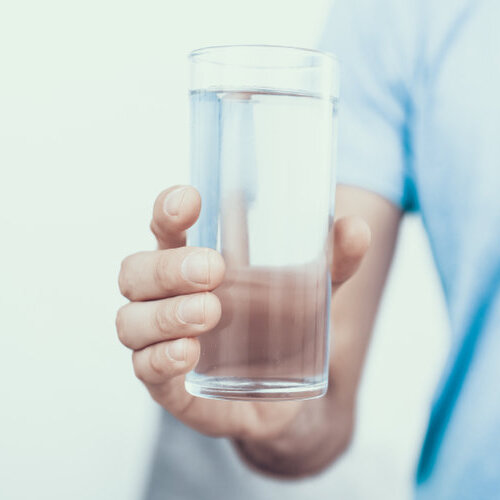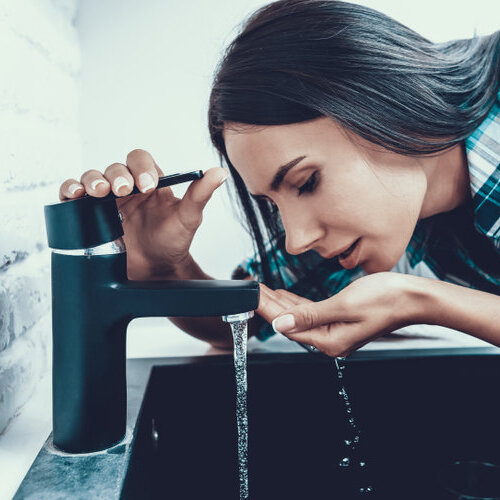
The Importance of Clean Water
Here in Missouri, folks want to make sure they are taking care of their families as adequately as possible. With the high concern of ground chemicals from lawn care, pest control, and agriculture use, many of us are concerned about how safe the water really is that comes into our homes. Because of that, water purification has become a popular subject today.
What is the importance of water purification?
A water purification system for the home offers several benefits, making the importance of water purification a substantial consideration for any homeowner:
- Safety
While the municipal water treatment system where you live is effective, it isn’t infallible. The number contaminants making their way into the water system is still high. Whether it is from faulty and outdated water pipes, pollution, or lawn care and pesticide residue, even extraordinary weather conditions like heavy rains can cause a municipal water treatment facility to fail. A water purification system in place can remove many of the things that get by the original water treatment.
- Contaminants
Bacteria, lead, pesticides, viruses and more can get into a water supply. The biological, chemical, radiological, and physical compounds and substances can be almost impossible to completely remove from the water. While local water authorities are charged with regulating the amounts of specific substances that are acceptable, one small slip up can lower the standards that keep water safe for human consumption and use, making a stand for water purification stronger.
- Health
We need to drink water for our health, but when water contains bacteria and viruses, is it safe? Contaminated water can cause diseases like cholera, diarrhea, and dysentery as well as health issues for the young, elderly, and those with compromised health. A water purification system can remove any of those common contaminants of chemicals like chloride, copper, lead, and sodium.
- Environment
With more households concerned with the safety of their water, the increase of bottled water is in the millions – as many as 50 million European households use bottled water. Bottled water is also a convenience, but not without a cost. In addition to the cost financially, it costs the environment too, and not because of our landfills. Consider the manufacturing of plastic bottles, the transportation of those bottles to the plants where they’re filled with water, and then transport of that water to stores.
- Odor and Taste
With a water purification system, your water is more than just healthier. It will be odor-free and will taste as pure and clean as you could desire!
What is water purification and its process?
The process of water purification is designed to remove chemical compounds along with both inorganic and organic materials, as well as biological contaminants from drinking water. That process includes converting liquid into vapor, (distillation), and then condensing it again to a liquid form. Next is the removal of ion (deionization) using dissolved salts.
This process achieves the goal of water purification so that we have clean and safe drinking water in our homes. The water purification process allows us to meet the needs of chemical, industrial, medical, and pharmacological applications where clean and potable water is needed. Water purification also minimizes the contaminant concentration of algae, bacteria, fungi, parasites, particles, and viruses.
What are the stages of water purification?
Water purification has several steps for a complete treatment process. Those steps include:
- Collection
- Screening and Straining
- Chemical Addition
- Coagulation and Flocculation
- Sedimentation and Clarification
- Filtration
- Disinfection
- Storage
- Distribution
What are the different methods of water purification?
There are numerous methods for water purification, each having its own benefits. Three of the most common are:
(1) Physical processes like distillation, filtration, and sedimentation
(2) Biological processes like active carbon or sand filters
(3) Chemical processes like chlorination, flocculation, and ultraviolet light
How do water purification systems work?
There are two ways for water filtration:
- Chemical Filtration: Water is treated and then impurities are removed with patent technology.
- Physical Filtration: Water is strained usually through a gauze-like membrane that removes larger particles.
Is water purification expensive?
A few different options in water purification are available, with pricing ranging from as low as $60 and as much as $4,200. Some options include:
Reverse Osmosis System: $200 to $4,200
This water purification system requires filter changes on a regular basis for efficient operation. That consideration can make the cost higher.
Under Sink System: $200 to $1,300
Single tap water purification filter systems are a popular choice for homeowners when bathing, dishwashing, and laundry aren’t a concern.
Countertop Machines: $60 to $500
These easy-to-use machines are a great choice, providing clean water on demand with a simple system you can set up yourself.
How much is a whole house water purification system?
The pricing on a whole house water purification system will vary based on several factors. They range between $900 and can be as much as $3,100. The average cost most homeowners pay for both water treatment and water purification system is $2,100.

When The Glass of Water Is Full …..
Are water purification systems worth it? And is water purification safe? Water filtration will reduce the possible corrosion, improve pH levels, and extend the lifespan of the water fixtures of your home. Water purification prevents rust stains in the dishwasher, showers, sinks, tubs, and toilets while making clothes brighter, softer, and help them last longer.
Where safety is concerned, water filtration will make the water your family consumes safer! In addition to having safer water, you’ll save money by not having to buy bottled water, and the bonus of helping the landfills too.
